

E-Books → Imperfect Oracle The Epistemic and Moral Authority of Science
Published by: voska89 on 20-03-2024, 22:31 |  0
0
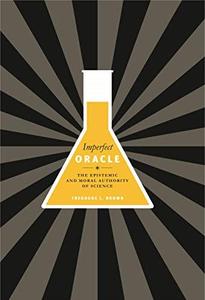
Free Download Imperfect Oracle: The Epistemic and Moral Authority of Science By Theodore L. Brown
2009 | 350 Pages | ISBN: 0271035358 | PDF | 3 MB
Science and its offshoot, technology, enter into the very fabric of our society in so many ways that we cannot imagine life without them. We are surrounded by crises and debates over climate change, stem-cell research, AIDS, evolutionary theory and "intelligent design," the use of DNA in solving crimes, and many other issues. Society is virtually forced to follow our natural tendency, which is to give great weight to the opinions of scientific experts. How is it that these experts have come to acquire such authority, and just how far does their authority reach? Does specialized knowledge entitle scientists to moral authority as well? How does scientific authority actually function in our society, and what are the countervailing social forces (including those deriving from law, politics, and religion) with which it has to contend?Theodore Brown seeks to answer such questions in this magisterial work of synthesis about the role of science in society. In Part I, he elucidates the concept of authority and its relation to autonomy, and then traces the historical growth of scientific authority and its place in contemporary American society. In Part II, he analyzes how scientific authority plays out in relation to other social domains, such as law, religion, government, and the public sphere.
E-Books → Knowledge Production and Epistemic Decolonization at the End of Pax Americana
Published by: voska89 on 18-03-2024, 04:35 |  0
0
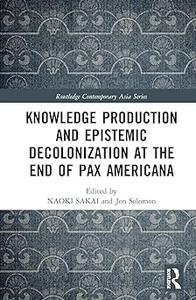
Free Download Naoki Sakai, "Knowledge Production and Epistemic Decolonization at the End of Pax Americana "
English | ISBN: 0367474026 | 2023 | 272 pages | EPUB, PDF | 842 KB + 38 MB
This book critically analyzes the global hegemony of the United States - a hegemony whose innovative aspect consists in articulating postcoloniality to imperial control - in relation to knowledge and knowledge production.
E-Books → Quine's Epistemic Norms in Practice Undogmatic Empiricism
Published by: voska89 on 13-03-2024, 15:16 |  0
0
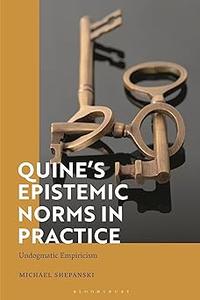
Free Download Michael Shepanski, "Quine's Epistemic Norms in Practice: Undogmatic Empiricism"
English | ISBN: 1350304263 | 2023 | 202 pages | PDF | 6 MB
In this illuminating guide to the criteria of rational theorizing, Michael Shepanski identifies, defends and applies W. V. Quine's epistemic norms - the norms that best explain Quine's decisions to accept some theories and not others. Parts I and II set out the doctrines of this epistemology, demonstrating their potential for philosophical application. Part III is a case study in which Shepanski develops a theory of the propositional attitudes by the method of formalizing inferences to behaviour. He presents critiques of popular alternative views, including foundationalism, the centrality of knowledge and Quine's own epistemological naturalism. By reassessing Quine's normative epistemology, Shepanski advances our understanding of Quine's philosophy whilst providing a guide for our own theorizing.
E-Books → Institutional Racism Colonialism, Epistemic Injustice and Cumulative Trauma
Published by: voska89 on 2-02-2024, 04:57 |  0
0

Free Download Institutional Racism: Colonialism, Epistemic Injustice and Cumulative Trauma
English | 2024 | ISBN: 1032033878 | 201 Pages | PDF (True) | 6 MB
The chapters present an understanding of how epistemicide, critical race theory, post-colonialism, white racial frames, white privilege, and insidious trauma can be used to critique the discourses and mechanisms that sustain a perpetrator perspective of institutional racism and how these concepts facilitate a victim perspective of institutional racism that documents the cumulative psychological and physical harms of institutional racism. The second half of the book provides grounded case studies of institutional racism in the areas of education, policing, the war on terror, and Covid 19 to demonstrate how contemporary processes of colonialism and epistemicide maintain and reinforce institutional racism to negatively impact physical and mental health and contribute to cumulative trauma.
E-Books → An Epistemic Foundation for Scientific Realism Defending Realism Without Inference to the Best Explanation
Published by: voska89 on 1-01-2024, 19:20 |  0
0
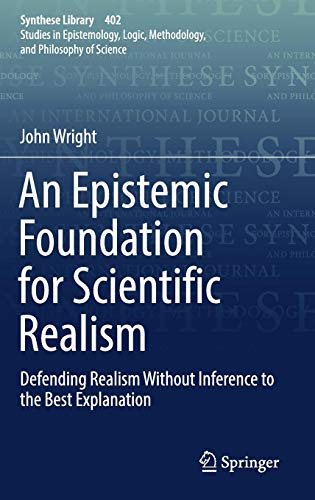
Free Download An Epistemic Foundation for Scientific Realism: Defending Realism Without Inference to the Best Explanation by John Wright
English | EPUB (True) | 2018 | 224 Pages | ISBN : 303002217X | 0.88 MB
This monograph develops a new way of justifying the claims made by science about phenomenon not directly observable by humans, such as atoms and black holes. It details a way of making inferences to the existence and properties of unobservable entities and states of affairs that can be given a probabilistic justification. The inferences used to establish realist claims are not a form of, and neither do they rely on, inference to the best explanation.
E-Books → Epistemic Authority A Theory of Trust, Authority, and Autonomy in Belief
Published by: voska89 on 16-02-2023, 02:01 |  0
0
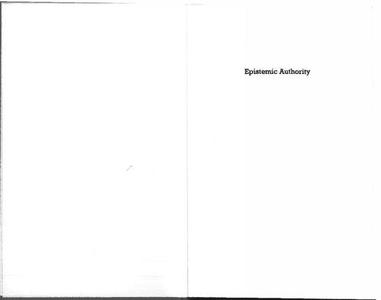
Epistemic Authority: A Theory of Trust, Authority, and Autonomy in Belief By Linda Trinkaus Zagzebski
2012 | 279 Pages | ISBN: 0199936471 | PDF | 47 MB
Gives an extended argument for epistemic authority from the implications of reflective self-consciousness. Epistemic authority is compatible with autonomy, but epistemic self-reliance is incoherent. The book argues that epistemic and emotional self-trust are rational and inescapable, that consistent self-trust commits us to trust in others, and that among those we are committed to trusting are some whom we ought to treat as epistemic authorities, modelled on the well-known principles of authority of Joseph Raz. Some of these authorities can be in the moral and religious domains. The book investigates the way the problem of disagreement between communities or between the self and others is a conflict within self-trust, and argue against communal self-reliance on the same grounds as the book uses in arguing against individual self-reliance. The book explains how any change in belief is justified--by the conscientious judgment that the change will survive future conscientious self-reflection. The book concludes with an account of autonomy. --Publisher's description.
E-Books → Epistemic Justice and Creative Agency
Published by: voska89 on 14-02-2023, 22:17 |  0
0

Stephanie Galasso, "Epistemic Justice and Creative Agency"
English | ISBN: 1032183926 | 2022 | 242 pages | PDF | 4 MB
Foundational theories of epistemic justice, such as Miranda Fricker's, have cited literary narratives to support their case. But why have those narratives in particular provided the resource that was needed? And is cultural production always supportive of epistemic justice? This essay collection, written by experts in literary, philosophical, and cultural studies working in conversation with each other across a range of global contexts, expands the emerging field of epistemic injustice studies.
E-Books → Epistemic Risk and the Demands of Rationality
Published by: voska89 on 11-02-2023, 01:17 |  0
0

Epistemic Risk and the Demands of Rationality
English | 2022 | ISBN: 0192864351 | 224 Pages | PDF | 2 MB
How much does rationality constrain what we should believe on the basis of our evidence? According to this book, not very much. For most people and most bodies of evidence, there is a wide range of beliefs that rationality permits them to have in response to that evidence. The argument, which takes inspiration from William James' ideas in 'The Will to Believe', proceeds from two premises. The first is a theory about the basis of epistemic rationality. It's called
E-Books → After Parmenides Idealism, Realism, and Epistemic Constructivism
Published by: voska89 on 10-02-2023, 23:16 |  0
0
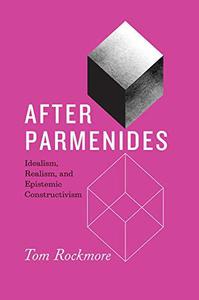
After Parmenides: Idealism, Realism, and Epistemic Constructivism By Tom Rockmore
2021 | 208 Pages | ISBN: 022679542X | PDF | 2 MB
Engages with one of the oldest philosophical problems-the relationship between thought and being-and offers a fresh perspective with which to approach the long history of this puzzle. In After Parmenides, Tom Rockmore takes us all the way back to the beginning of Western philosophy, when Parmenides asserted that thought and being are the same.This idea created a division between what the mind constructs as knowable entities and the idea that there is also a mind-independent real, which we can know or fail to know. Rockmore argues that we need to give up on the idea of knowing the real as it is, and instead focus on the objects of cognition that our mind constructs. Though we cannot know mind-independent objects as they "really" are, we can and do know objects as they appear to us.After Parmenides charts the continual engagement with these ideas of the real and the knowable throughout philosophical history from Plato and Aristotle to Descartes, Kant, Fichte, Hegel, Schopenhauer, Marx, and others. This ambitious book shows how new connections can be made in the history of philosophy when it is reread through a new lens.
E-Books → Colonization and Epistemic Injustice in Higher Education Precursors to Decolonization
Published by: voska89 on 5-02-2023, 00:22 |  0
0

Felix Maringe, "Colonization and Epistemic Injustice in Higher Education: Precursors to Decolonization "
English | ISBN: 1032018917 | 2023 | 174 pages | PDF | 2 MB
Providing coherence in understanding the role that education and higher education played in the colonizing purposes of the rich nations of the North, this book draws from multiple geopolitical spaces across the world to consider how epistemic injustice has characterized colonial higher education systems.



